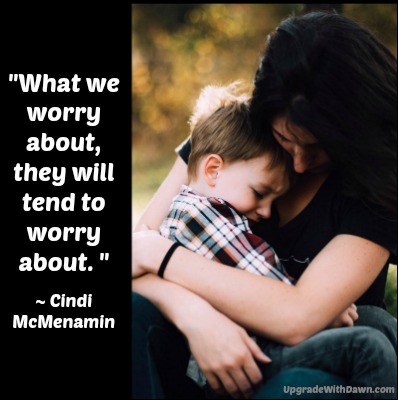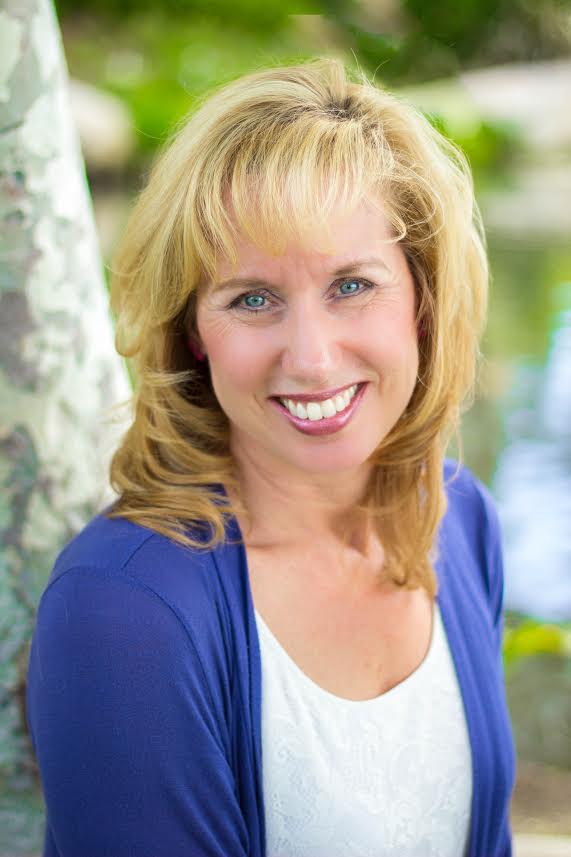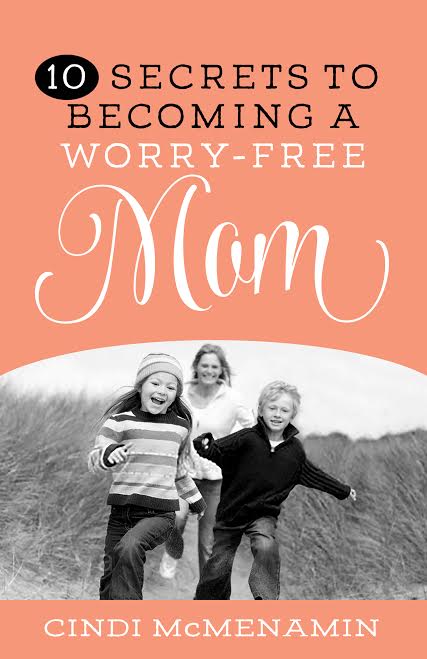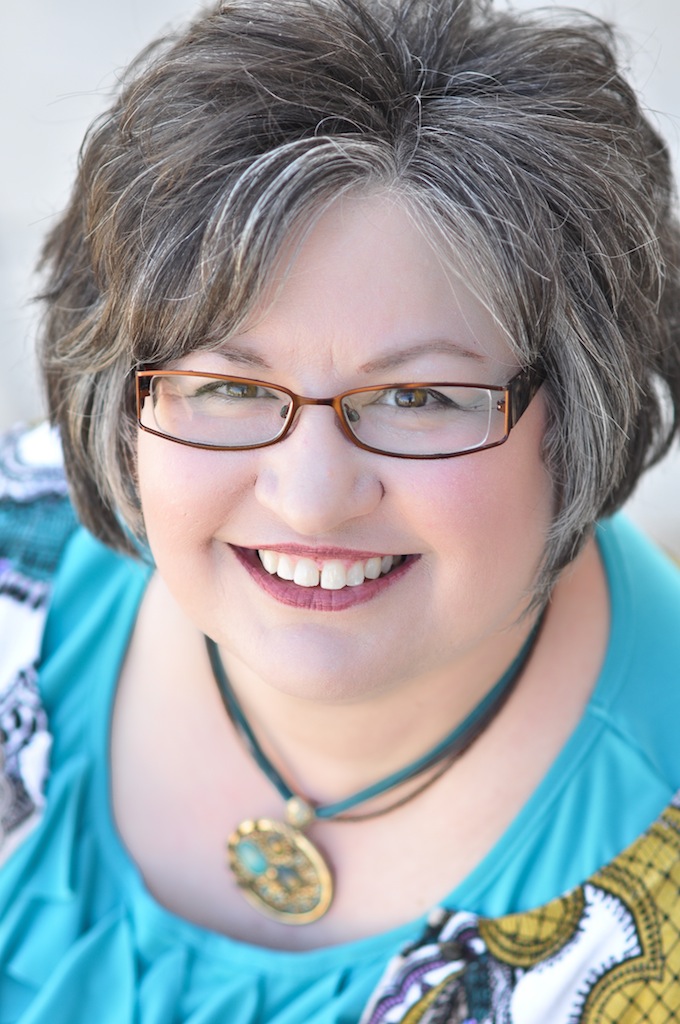3 Ways Worry Hurts Your Kids
Cindi McMenamin is a wise woman with a heart for women and families. In this Parenting UPGRADE,  she asks us to examine how our worrying might not just be our own problem.
she asks us to examine how our worrying might not just be our own problem.
“It’s natural for a mom to worry that her children will be hurt," Cindi says, "but do you and I ever consider how we might be hurting our children by worrying about them?”
Whenever I (Dawn) see a mom in a worried state, I watch her children. It's so apparent how a mom's worries and fears affect little ones!
Cindi continues . . .
Take a look at what worry does to us, and ultimately, to our children:
1. Worry Stresses Us Out - Which Stresses Out Our Kids
Worry causes stress—and stress kills. Literally.
Stress not only impacts a woman's health, appearance, relationships, and overall quality of life, stress prematurely ages us. Worry is also linked to ulcers and other health problems.
So when you are worrying and stressed out, you are stressing out your children, as well.
By choosing not to worry, you are investing in your health, which is a gift to yourself and your family.
2. Worry Pushes Our Children Away.
One of the reasons children grow up and stop telling their parents what is going on in their lives is because they “don’t want mom to worry.”
When I was writing my book, When a Mom Inspires Her Daughter, I asked daughters, ages 12-40, about their relationships with their moms. Through their answers, I discovered that most daughters, regardless of their ages, said their moms worried about them too much.
They knew mom cared for them, but it concerned them, and at times annoyed them, that their mothers worried so much.
By choosing not to worry, you are investing in your relationship with your children and keeping the channels of communication open with them, regardless of their ages.
3. Worry Models Mistrust to Our Children.
Worry says to our children and others: "God can't work this out." Therefore, worry is the sin of having no confidence in God.
I know that you, like me, aren’t consciously thinking those words when you worry. But I also know you don’t want to display that type of mistrust to your children.
How we live will, to a great degree, impact how our children live. What we worry about, they will tend to worry about.
On the flip side of that, where we put our trust will greatly impact how they will choose to handle situations in life, too.
Even if they don't imitate your faith or degree of trust, they will know on Whom you rely (or don’t rely) and it speaks louder to them than any lecture.
The choices we make—including whether we decide to worry or trust God—will no doubt influence our children's choices well into their adulthood.
We tend to think that how much we worry is an indication of how much we love our children. But it is actually an indication of how little we know God. Because the more we get to know God as the all-knowing, all-loving, Perfect Parent, the more easily we will trust Him with what is most important to us and experience peace, no matter what happens.
God gave us a formula in His Word to help us stop the worry:
"Don’t worry about anything; instead, pray about everything. Tell God what you need, and thank him for all he has done. Then you will experience God’s peace, which exceeds anything we can understand. His peace will guard your hearts and minds as you live in Christ Jesus" (Philippians 4:6-7, NLT).
The very next verse tells us how to stop the worrying, so we can experience that kind of peace that comes through praying about everything:
"… Fix your thoughts on what is true, and honorable, and right, and pure, and lovely, and admirable. Think about things that are excellent and worthy of praise" (verse 8).
There it is.
- Think about what is true, not what “might happen.”
- Focus on the facts of the situation, not your fears.
- Think on God’s character—that which is honorable and pure and lovely and admirable—and what He can do, not the worst possible scenario.
As you focus on God’s goodness, God’s love, and God’s ability to control all that you cannot, there is no room in your mind for fear or worry.
Trust God with your children. He can control all you think you must and all you are convinced you can’t. And He knows exactly what He’s doing in your child’s life – and yours.
What will you start doing today to stop worrying about your children and start trusting God with them?
Cindi McMenamin is a national speaker and popular author who helps women find strength for the soul. She is the author of several books, including When Women Walk Alone
soul. She is the author of several books, including When Women Walk Alone  (more than 125,000 copies sold), When a Mom Inspires Her Daughter, and her newest book, 10 Secrets to Becoming a Worry-Free Mom, upon which this post is based. For more on her ministry, discounts on her books, or free resources to strengthen your walk with God, your marriage, or your parenting, see her website: StrengthForTheSoul.com.
(more than 125,000 copies sold), When a Mom Inspires Her Daughter, and her newest book, 10 Secrets to Becoming a Worry-Free Mom, upon which this post is based. For more on her ministry, discounts on her books, or free resources to strengthen your walk with God, your marriage, or your parenting, see her website: StrengthForTheSoul.com.
Graphic adapted, courtesty of stocksnap.io.
 Post a Comment → Posted on
Post a Comment → Posted on  Tuesday, January 24, 2017 at 7:32AM
Tuesday, January 24, 2017 at 7:32AM  Children are watching,
Children are watching,  Cindi McMenamin,
Cindi McMenamin,  Confidence in God,
Confidence in God,  Fear,
Fear,  Parents' Influence,
Parents' Influence,  Trust God,
Trust God,  Upgrade with Dawn,
Upgrade with Dawn,  Worry,
Worry,  Worry-free,
Worry-free,  Worry-freeMom Upgrade Your Life
Worry-freeMom Upgrade Your Life  Parenting,
Parenting,  Relationship with God
Relationship with God 
















